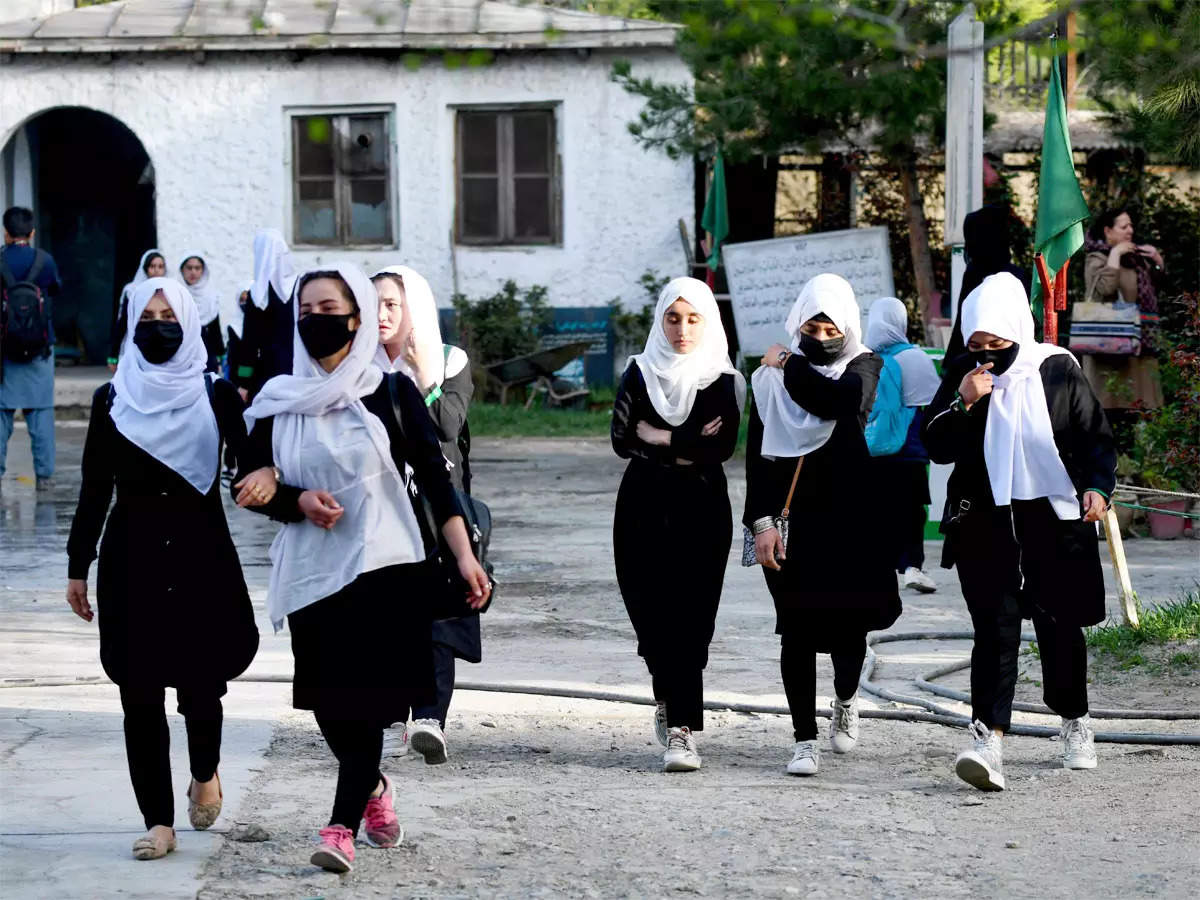Since the beginning of the Doha negotiations between the Taliban and the USA, there were serious attempts to indoctrinate people into believing that the Taliban had changed in terms of their thinking and are not the same Taliban as seen in the 1990s. But the majority of the Afghan people knew that such perceptions were merely promoted to give an edifice of legitimacy to the negotiations. The Taliban were still a terrorist organization at the forefront of UN sanctions. The purpose behind the massive PR exercise was only to prevent a backlash against the US due to its willingness to negotiate with the group.
A year and a half after the Taliban took control over Kabul, the world has realized that not only has there been no change in the Taliban’s attitude, but their actions have taken an extreme form, and day by day they are imposing their archaic laws and practices on the people of Afghanistan, especially women and girls.
The Taliban, with their recent decision of prohibiting girls from accessing education, belied the international community’s expectations that they can integrate with the world and be true representatives of the hopes and aspirations of the people of Afghanistan.
And they proved that the Taliban are not only going back to their previous ways of thinking but have imposed their policies on the people with greater intensity.
By preventing girls from going to universities, the Taliban practically proved that the women and girls of Afghanistan have no hope left to achieve socio-economic progress. Just like the inmates of Hitler’s concentration camps had no hope of freedom, they were mercilessly and methodically tortured and killed! Today, in front of the civilized world of the 21st century, Afghan girls’ souls, minds, and bodies are facing the same fate as the people of Hitler’s concentration camps! Afghan women and girls are waiting to see what the international community will do with the Taliban group as the ball is in their court. The question we as Afghan women ask from the international community is whether they wish to remain silent on these developments, or will they make efforts to hold the Taliban accountable this time? Or would they continue interacting with the Taliban at the cost of our sufferings, adding injuries to our souls by injecting millions of dollars on the pretext of helping the people of Afghanistan, which strengthens the financial foundation of this group as people continue to suffer?
Today, Afghan women are waiting for answers from the international community, which expects the world to cooperate and recognize the Taliban, what is the answer to the women and girls of their country, and how will they justify their demand?
When the representatives of the Organization of Islamic Cooperation praised the performance of this group and opened their representative office in Kabul, we are anxious to know what their response would be to the Muslim women and girls of Afghanistan. What was so praiseworthy about the Taliban? What about the extra-judicial and public executions or the imprisonment of women and girls who demanded their rights within the framework of Islam only?
It can be said that the women and girls of Afghanistan have been pushed to the brink of destruction, and it seems that lip service by the international community is no longer effective! At this critical juncture, the women and girls of Afghanistan expect the international community to go beyond their usual repertoire of advice and condemnation and take effective and decisive measures to prevent what is happening to half of the country’s population.
Afghan women believe the international community’s attitude is only justifying the medieval actions of the Taliban. To base one’s foreign policy merely on economic and strategic interests is akin to shirking moral responsibility to the world.
Today, when the world is raising its voice for justice for Iranian women and girls, why is there silence and indifference to the oppression of Afghan women and girls? How is the Iranian situation different from that of Afghanistan?
Afghan women and girls have equal rights to seek help and be heard by the international community.
Featured Image – AFP

